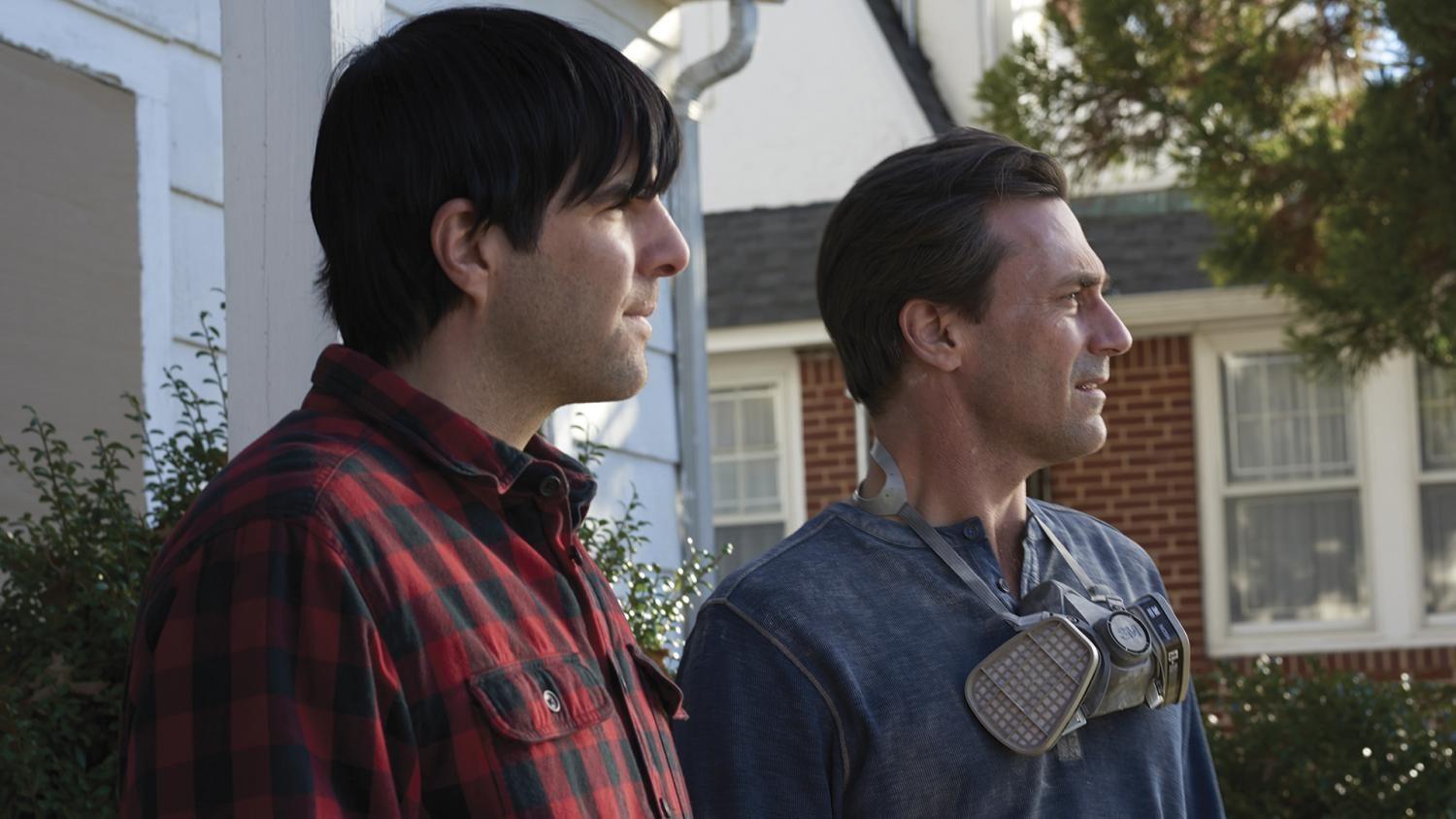Tribeca 2017: Jon Hamm, Jenny Slate Can’t Save ‘Aardvark’
Actor and producer Zachary Quinto stars as Josh Norman and actor Jon Hamm stars as Craig in writer and director Brian Shoaf’s film “Aardvark.”
May 1, 2017
Narrative films at the Tribeca Film Festival tend to get a bad reputation. On occasion, movies debuting with bigger stars will even be looked upon as rejects from other festivals. As with all generalizations, this is a little unfair — although with films like Brian Shoaf’s “Aardvark”, which had its premiere at Tribeca last weekend, it can be a challenge to argue with the label.
Set in an unnamed sleepy town, Josh Norman (Zachary Quinto) begins to see psychologist Emily Milburton (Jenny Slate) after he claims to have a history of psychic disorders. Viewers are immediately thrown into the therapy sessions with little to no background knowledge on either character. Such a move shows a sign of confidence in the film’s actors — and with good reason — but a continuously mediocre script offers utterly no material with which Quinto and Slate can work.
Josh is presented in an obtuse, off-kilter fashion by being outfitted with a moppy haircut, ill-fitting clothing and an aggressive lack of social cues, while Emily seems to have her own set of issues given her uptight, manicured look and fidgety lack of focus. Immediately telegraphing these surface level characterizations is a bit lame, especially considering how mental illness is given a kind of look, per say. But things only worsen when viewers are given some background info on the characters. The information offered is sparse, to say the least,as Emily has a fraught relationship with a professor, who calls her a slut for reasons we are never privy. And Josh works at a coffee shop and continuously seems to hallucinate during rather bizarre and overly simplified sequences of ambient noise with shots of people staring directly into the camera.
Things look a bit more promising when Josh’s actor brother Craig (Jon Hamm) returns to town and it’s revealed that many of Josh’s psychic episodes center on his estranged brother. This change is mostly a testament to Hamm, whose charisma and charm are seemingly undeniable no matter the material. But it’s very quickly soiled when it’s revealed Craig’s character has little to offer as well, other than his desire to sleep with Emily despite knowing she is treating his brother. To make matters even more bizarre, Emily obliges him, and little is done throughout the film to discuss the incredible ethical issues such a relationship poses, especially considering Josh unaware that it is occurring.
As if to alleviate this incredibly immoral behavior, a woman named Hannah (Sheila Vand) is introduced to act as a love interest for Josh, though there’s an underlying tension as to whether or not she’s a hallucination. This tension is ultimately minor and seemingly justifies why Hannah possesses no defining characteristics whatsoever, other than to act as a kind of manic pixie dream girl to whom Josh can continuously ramble.
The parallels between relationships is presumably meant to expose the issues the characters deal with. But instead it brings to light how much of Craig and Emily’s relationship is just Craig lecturing Emily, making for a film mostly comprised of men talking at women. The emotional climax of “Aardvark” is more of a sputter than any kind of catharsis, ultimately making for a film that is at its best unwatchable and at its worst unethical.
Email Ethan Sapienza at [email protected].













































































































































